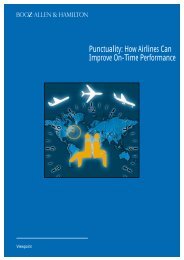The sentence
The sentence
The sentence
You also want an ePaper? Increase the reach of your titles
YUMPU automatically turns print PDFs into web optimized ePapers that Google loves.
2. Verbs which end in the following sounds are pronounced /t/ in the past: /k/ packed; /s/<br />
passed; /t∫/ watched; /∫/ washed; /f/ laughed; /p/ tipped.<br />
3. A few verbs are pronounced and spelt /d/ or /t/: burned/burnt; dreamed/dreamt.<br />
4. Verbs ending in the sounds /t/ or /d/ have their past ending pronounced /id/:<br />
added, decided, counted, excited, needed, posted, shouted, started, tasted, wanted.<br />
Irregular past forms<br />
1. Some irregular verbs have the same form in all parts: hit-hit-hit, cut-cut-cut.<br />
2. Some change one part only: keep-kept-kept, make-made-made, sell-sold-sold.<br />
3. Some change two parts: break-broke-broken, know-knew-known, ride-rode-ridden.<br />
Uses of the simple past tense: I worked/he worded’<br />
We use the simple past to talk about events, actions or situations which happened in the<br />
past and are now finished. We always have to say (or imply) when the action happened, so we<br />
often use time references like yesterday, ago, last summer.<br />
We use the past:<br />
- to describe actions which happened in the recent or distant past:<br />
- Sam phoned a moment ago. (Not *Sam has phoned*)<br />
<strong>The</strong> Goths invaded Rome in A.D. 410. (Not *<strong>The</strong> Goths had invaded*)<br />
- to describe past habit: I smoked forty cigarettes a day till I gave up.<br />
If we do no use time references (a moment ago, when I was young, etc.) we imply them:<br />
I saw Fred in town. (i.e. when I was there this morning)<br />
I never met my grandfather. (i.e. perhaps he died before I was born)<br />
D. <strong>The</strong> simple past and past progressive tenses<br />
Irregular verbs with the same form in the present as in the past: ‘put/put’<br />
A small number of irregular verbs have the same form in the present as in the past: e.g.<br />
burst/burst, cost/cost, cut/cut, hit/hit, put/put. We have to remember, especially with such<br />
verbs, that the third person singular does not change in the past:<br />
He put on a clean shirt yesterday. (past) He puts on a clean shirt every day. (present)<br />
After I, you, we, and they, the context or the adverbial tells us the tense:<br />
I put on a clean shirt yesterday. (past) I put on a clean shirt every day. (present)<br />
Uses of the past progressive tense: ‘I was working’<br />
<strong>The</strong>re are five basic uses of the past progressive tense. We use it for:<br />
1. Temporary actions in progress in the past: I was living abroad in 1987.<br />
We often use all to emphasize continuity (all day, all summer): It was raining all night.<br />
2. Actions which were in progress when something else happened:<br />
Just as/When I was leaving, the phone rang.<br />
<strong>The</strong>se are often introduced by conjunctions like when, as, just as and while, but the<br />
shorter action can be introduced by when: We were having supper when the phone rang.<br />
3. Actions is progress at the same time: While I was reading, Joan was playing the piano.<br />
56




